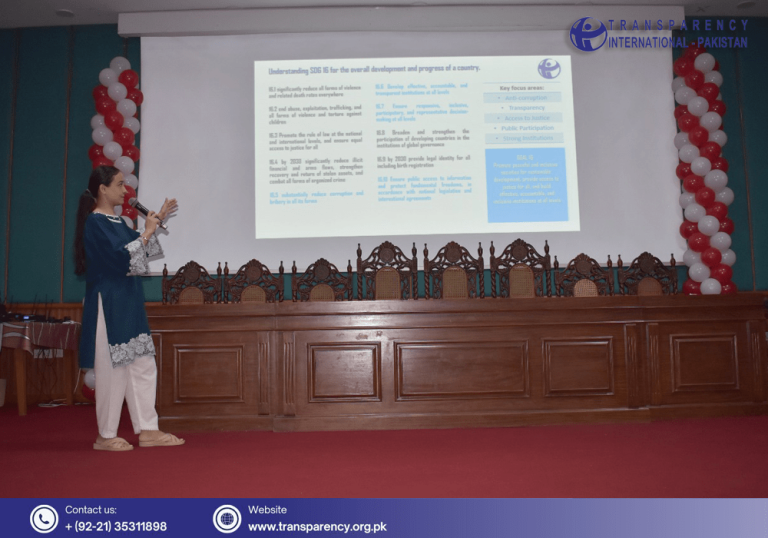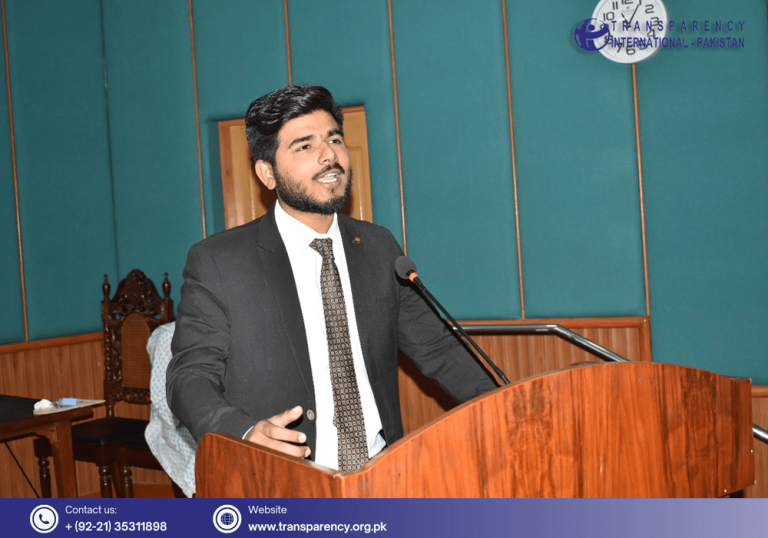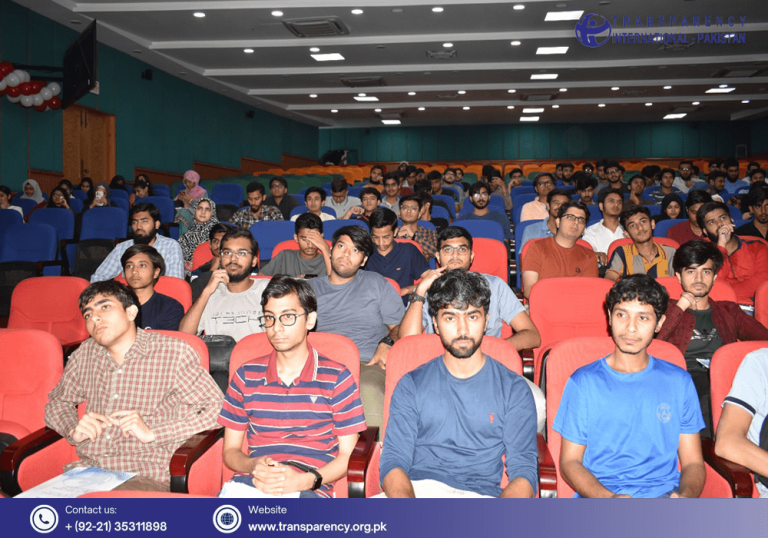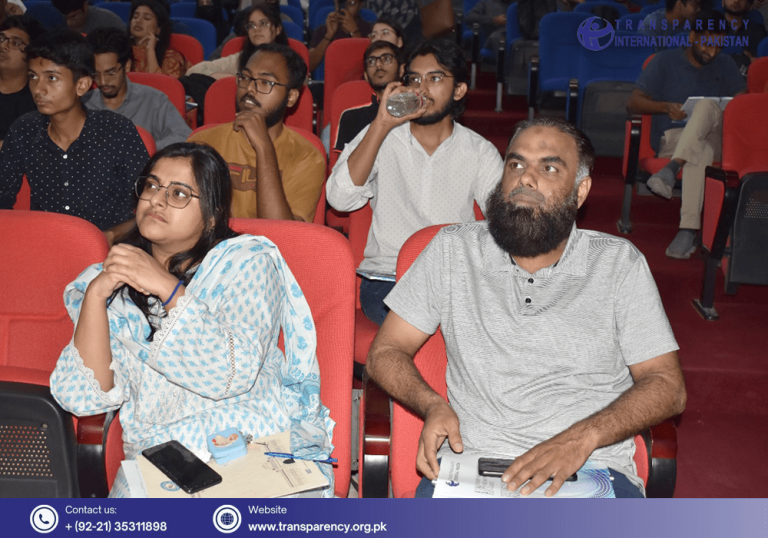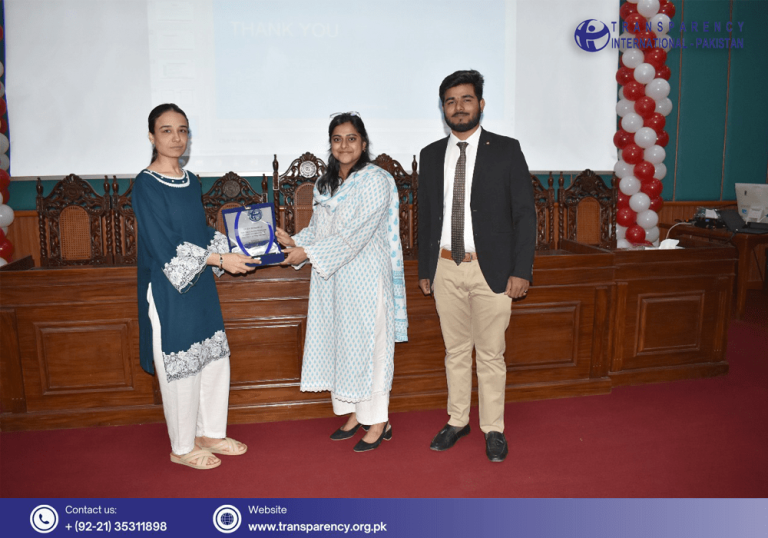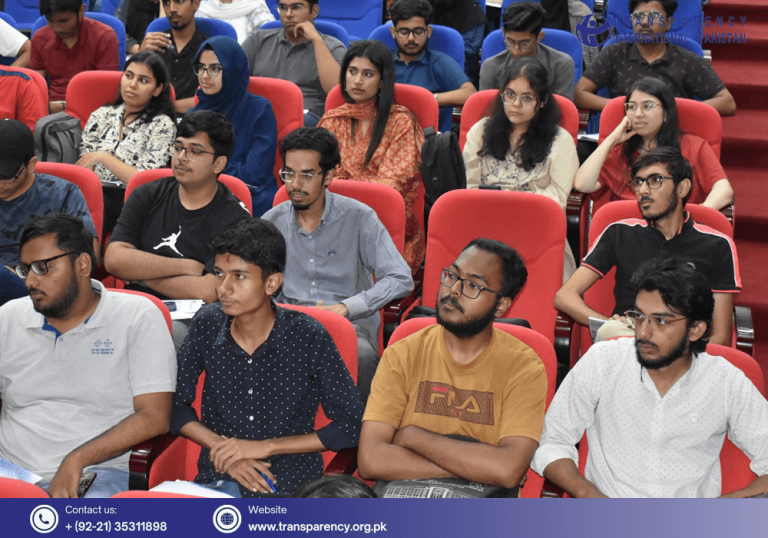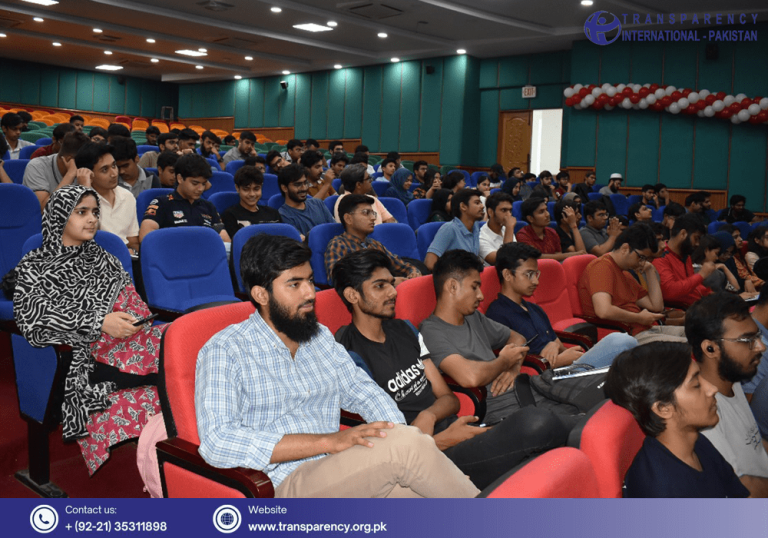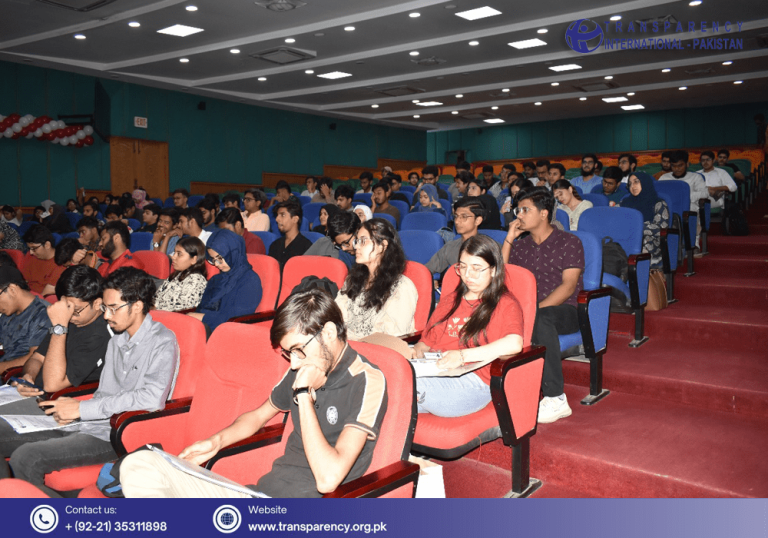Youth Capacity Building Workshop on Sustainable Development Goal 16 (Peace, Justice & Strong Institutions)
Event Summary: Youth Capacity Building Workshop on Sustainable Development Goal 16 (Peace, Justice & Strong Institutions)
Date: April 21, 2025
Venue: National University of Computer and Emerging Sciences (FAST-NUCES), Karachi Campus
On April 21, 2025, Transparency International Pakistan in collaboration with the National University of Computer and Emerging Sciences (FAST-NUCES), Karachi Campus, organized a Youth Capacity Building Workshop focused on Sustainable Development Goal 16 (SDG 16): Peace, Justice & Strong Institutions. The workshop aimed to engage and empower young minds in advancing the principles of good governance, transparency, and democratic participation in the decision making. The capacity building workshop was attended by more than 70 students and served as a platform to enhance youth skills on the significance of SDG 16, the role of governance and transparency in development, and the social accountability tools available to promote inclusive and effective participation of citizens in the governance.
The workshop commenced with the recitation of the Holy Quran. Ms. Kauser Malik, Lecturer FAST University delivered welcoming remarks. She emphasized the importance of engaging youth in fostering integrity, justice, and good governance within their communities. She appreciated the efforts of TI Pakistan in empowering youth leadership and underscored the importance of collaboration between academic and non-profit institutions.
Ms. Sonia Arain, Project Coordinator at TI Pakistan delivered comprehensive presentation on “SDG 16 and its importance”. She provided a brief overview of all 17 goals, with a particular focus on SDG 16. She elaborated that SDG 16 is a cross-cutting goal and serves as the foundation for the rest of the development agenda, as without accountable institutions and inclusive governance, the remaining SDGs cannot be effectively achieved. She discussed the need for the rule of law, reduced corruption, and access to justice as fundamental elements of social and economic development. She emphasized that the 2030 Agenda cannot be fulfilled without addressing institutional gaps and promoting transparent governance systems that include young citizens as active stakeholders.
She further engaged students in interactive section to explore the implications of weak governance systems on service delivery and social justice. She emphasized that youth play a critical role in strengthening institutions and must actively engage with democratic tools and platforms to influence public policy. She pointed out that without public participation, especially from young people, decision-making becomes disconnected from the real needs of society. She encouraged students to develop civic leadership skills, participate in local governance structures, and use their voices to bring about policy reforms.
Moving forward, Mr. Saad Aalam Angaria, Assistant Project Coordinator at TI Pakistan conducted a session on “Transparency and Public Access to Information,” focusing specifically on SDG 16.10. Mr. Saad began by explaining the legal basis of the Right to Information (RTI) in Pakistan, referencing Article 19-A of the Constitution and the Sindh Transparency and Right to Information Act, 2016. He emphasized that RTI is not only a legal tool but also a civic right that empowers citizens to hold public officials accountable and demand information about public spending, policies, and service delivery. He highlighted that RTI promotes transparency, reduces corruption, and fosters trust between the government and the citizens. He pointed out that many citizens, including students, are unaware of their right to request information and the procedures involved in filing RTI applications.
Mr. Saad further elaborated on the process of filing an RTI request, identifying public bodies covered under the Sindh RTI Act and the timeline within which information must be provided. He also discussed the responsibilities of designated Public Information Officers (PIOs) and the role of the Sindh Information Commission in ensuring compliance with RTI laws. He highlighted several practical examples where RTI had led to good governance and encouraged students to use this tool to engage with public institutions.
The workshop proceeded with an interactive Q&A session where students asked questions related to the implementation challenges of the Right to Information (RTI) laws, including procedural hurdles in filing RTI requests and delays in responses from public bodies. In addition, students discussed broader barriers to youth participation in governance and explored how civil society organizations can empower youth leadership at the local level. The session facilitated a productive dialogue on Sustainable Development Goals, enhancing youth awareness and encouraging their participation in the monitoring and implementation of SDG16.
Towards the end, closing remarks were delivered by Ms. Kauser Malik, Lecturer FAST University. She emphasized the need to continue such capacity-building initiatives at the university level. The workshop concluded with the commitment to nurture citizenry capable of playing effective role in the implementation of SDGs through active participation in governance.

